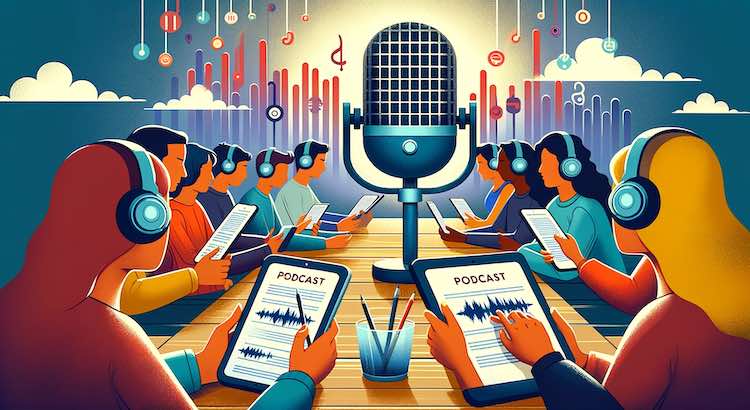Enhancing Podcast Reach and Inclusivity Through Accurate Transcriptions
Podcasts are a popular way to share stories, teach, and entertain. Yet, many people cannot access podcasts easily, especially those who are deaf or hard of hearing, people who speak different languages, or those in noisy places. Transcribing podcasts into text helps everyone enjoy them.
Why Podcast Transcription Matters
Accessibility for All Audiences
Accurate transcription makes podcasts open to everyone, not just those who can listen. Here’s how transcription breaks down barriers:
- People who are deaf or hard of hearing can read what is said.
- Non-native speakers can better understand and use translation tools.
- Anyone in a quiet zone, like a library or public transit, can read instead of listen.
In the United States, about 15% of adults have trouble hearing (CDC, 2020). Podcast transcription allows this group to enjoy audio content they may otherwise miss.
To make your podcast more accessible, consider using transcription services designed for these needs.
Boosting Discoverability and SEO
Transcribing podcasts is also great for search engine optimization (SEO). Search engines cannot "listen" to audio but they can "read" text.
- Transcripts allow your podcast content to show up in search results.
- They add keywords and phrases related to your topic, which helps with ranking.
- A text version means your content is easier for bloggers and journalists to quote and link.
Studies show that written content can drive up to 50% more search traffic to websites (Moz, 2022).
To improve your podcast’s search visibility, you may benefit from automated transcription or an AI transcription subscription based on your episode volume.
Content Repurposing Opportunities
A single podcast can become many forms of content with a transcript. Here’s how creators extend their reach:
- Turn a transcript into a blog post or article.
- Create social media posts from eye-catching quotes.
- Use segments in newsletters or downloadable resources.
- Share written resources for students or researchers.
Researchers found that content repurposing boosts engagement by up to 35% across platforms (Content Marketing Institute, 2022).
Good transcription is the starting point for text translation services or making audio translation of your podcast content.
Improving User Experience and Engagement
Transcripts help listeners interact with your content in the way they prefer.
- Users can easily scan text for topics that interest them most.
- Listeners can return to tricky parts or quotes.
- Podcast guests or hosts can check for accuracy or clarify their points.
Easy access to podcast text increases the amount of time visitors spend on your website and deepens their connection to your brand (HubSpot, 2023).
The Value of Accurate Transcription Services
Choosing Professional Transcription
For all these benefits, your transcript must be accurate and detailed. Professional services ensure:
- The words and the tone are correct.
- Nuances, emotions, and technical terms are preserved.
- The transcript is readable and well-formatted.
Errors and missing sections can confuse or frustrate your audience. For best results, many creators use a combination of transcription proofreading services and AI to guarantee quality at scale.
Adding Captions and Subtitles
Some podcasts become video shows online. Closed captions and subtitles help make them accessible on platforms like YouTube.
- Captions display spoken words onscreen for viewers in real time.
- Subtitles can translate speech for global audiences.
- Both improve understanding and reach.
To help your video podcasts stand out, try closed caption services or subtitling services.
Cost and Value of Podcast Transcription
You might worry about costs. However, transcription is affordable, especially compared to the audience gains.
- Many services offer low transcription pricing by the minute.
- Captioning rates are also budget-friendly.
- You can order transcripts or captions online with fast turnaround times.
Investing in accessibility can grow your listener base, improve loyalty, and help your show rank higher on search engines.
Conclusion
Podcast transcription unlocks wider access, better search results, content repurposing, and more engaging listener experiences. As podcasts become more popular, accurate transcriptions will matter even more.
If you want to make your podcast accessible and reach new audiences, GoTranscript offers high-quality transcription services and fast online ordering. For podcast video, add closed captions or order captions here. They have everything you need to help your content connect with everyone, everywhere.



















 Verified Order
Verified Order